#beren bright
Text
My Top 23 Screenshots from 2023
Thanks for the tag @sharona-sims 😊
Pictures below the "Keep reading" cut
Most of the pictures also have links to the posts they're from 🙂
From The Original Ahriman
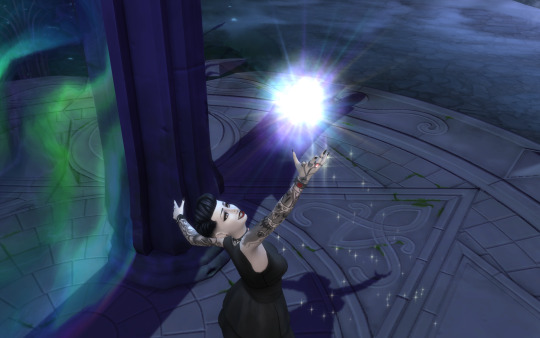
Ahriman being photogenic

These two being... questionable? 😅
(It's just self-woohoo with extra steps)
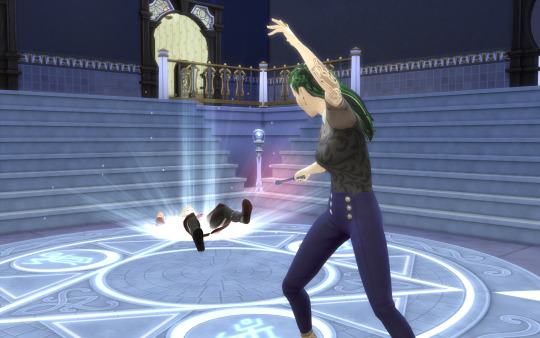
Morgyn's training session
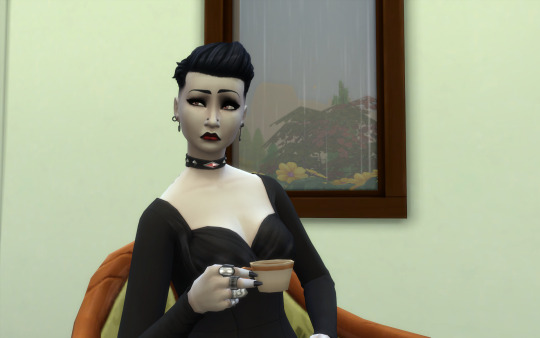
The "What do you mean I should treat others the way I want to be treated?" face

Cornelia Goth making her son nervous
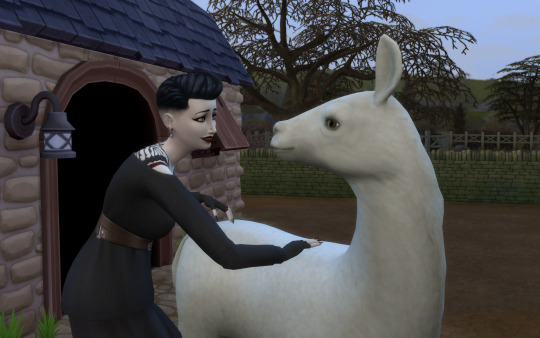
Ahriman meeting Harold 🥰
From The Brights
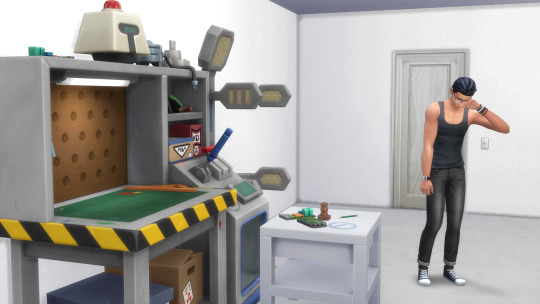
Beren crying 🥺 Taking this screenshot broke my heart

Beren laughing 🥰 When he played Never Have I Ever with Jayden, Cameron, and Julia
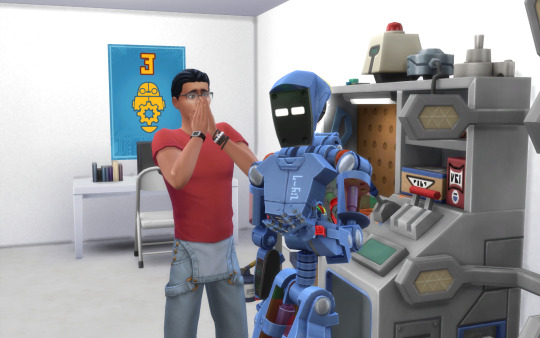
Beren reacting to when Melon first started

New chassis colours! Kodex kept their original blue chassis colour, Eve changed to silver, and Melon changed to red

The first time Ahriman saw a bot
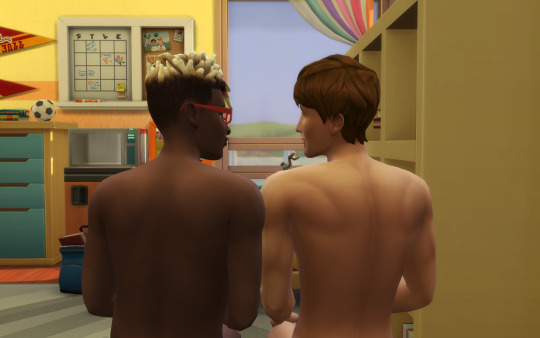
Cameron and Jayden breaking up 🥲
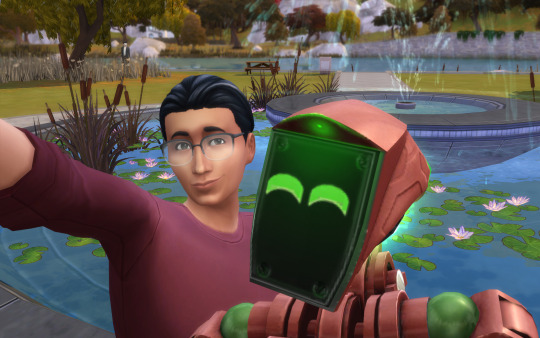
Selfie! The picture for Arc 2 😊 (Also, see if you can find something I hid in the background)

Beren and Melon going to a restaurant
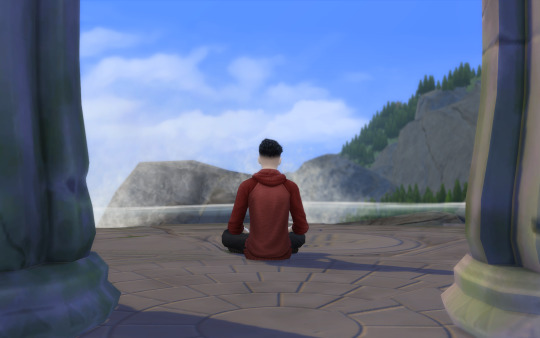
Ahriman sitting by the broken portal
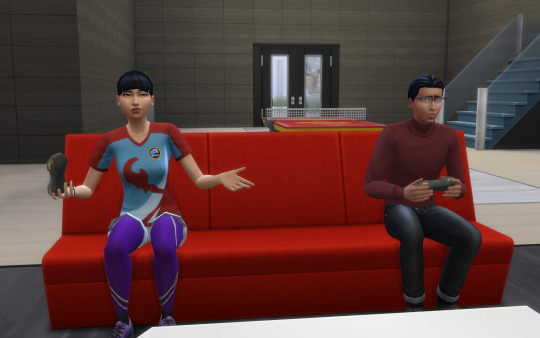
Beren "got distracted" 😅
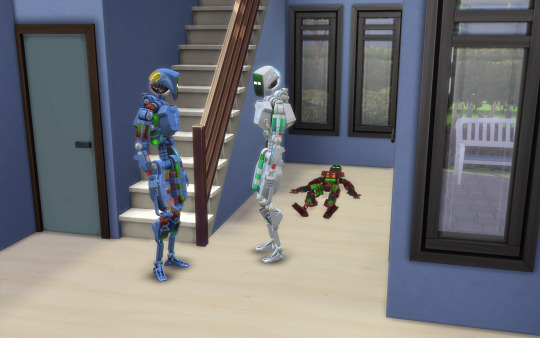
Melon being dramatic 😂
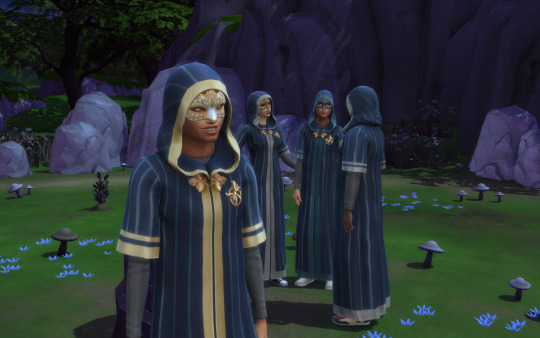
The Order of Enchantment when they were found by Julia. I just love how he squints with one eye 😆
Other

✨ Glimmerbrook ✨
And here are four pictures from a Dress Up / Alternate Universe Prompt game. People gave me prompts, and I dressed up my sims in a separate save file. All of these are just me playing around with the ideas from the prompts, so they're completely AU and not canon 😆
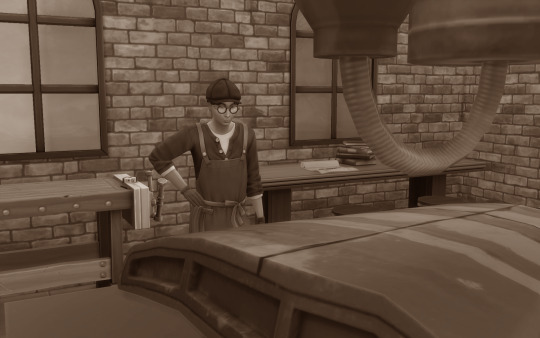
Beren as an engineer in the 1800s
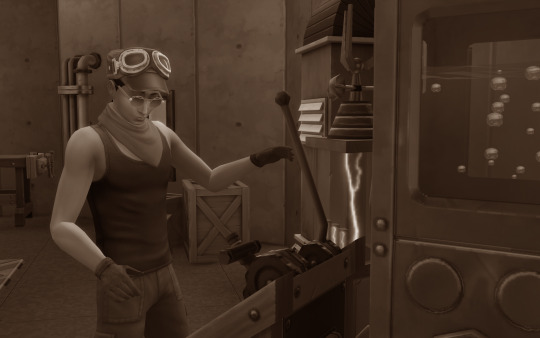
Beren as a steampunk engineer
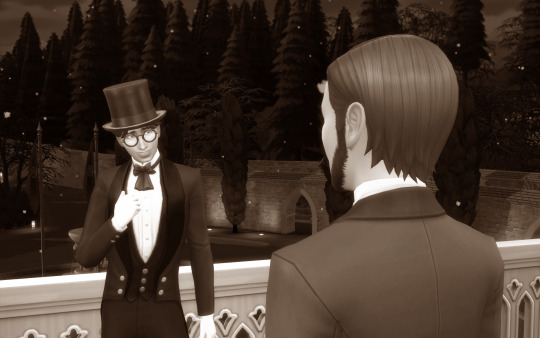
Beren and Andrew at a ball in the 1800s
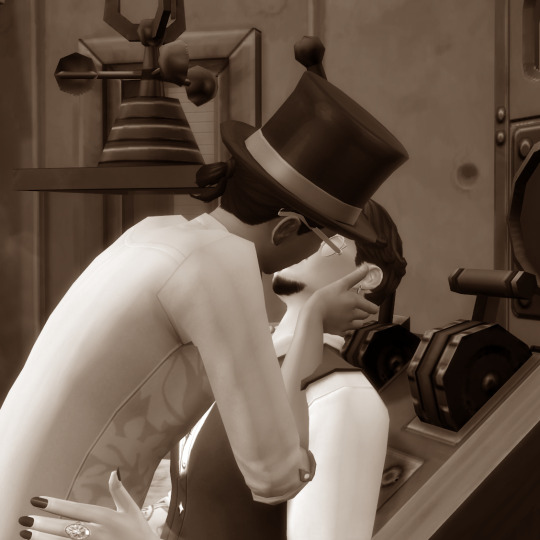
Beren as a steampunk scientist and Ahriman as a vampire, in the 1800s
And I'm tagging @pomelosims, if you want to do it, no pressure 😊
#the sims 4#show us your stories#show us your sims#the brights#the original ahriman#beren bright#ahriman#melon bright#andrew#kodex simbot#eve phong#aine dyer#morgyn ember#cornelia goth#mortimer goth#harold the llama#jayden armstrong#cameron fletcher#morgan park#kit bae#valeria lopez#eric lewis#malcolm landgraab#spellcasters#servobots#vampire#magic#llama#robotics#secret society
8 notes
·
View notes
Text
Elves being able to see a whole spectrum of colours that mortals can’t.
Elves wearing the gaudiest possible colour combinations… that just look white to mortals.
Beren genuinely not understanding a conversation he overhears between Finrod and Celegorm about gaudy colours and clashing clothes because to him they are just wearing white. Plain white. And ok maybe the jewellery is a little excessive but also not the worst he’s seen on Finrod (there’s no nauglamir for one).
Tuor repeatedly being assured that Gondolin is actually quite bright and colourful, it just looks like everything is white to him. He doesn’t understand it, but he accepts it. Especially when Idril starts wearing more colours he can see.
Arwen taking advantage of this same thing Ages of the world later to wear the Most Hideous Outfits possible and watch the elven ambassadors squirm.
639 notes
·
View notes
Text
If You Hold a Silmaril-
Things might get a little weird.
On the night which Thingol first held the Silmaril, he dreamed of Finwe.
He saw his friend standing beneath Laurelin and Telperion, laughing in wonder. 'Elwe!' he called, 'Elwe, isn't it beautiful?'
Thingol didn't get the chance to reply, because the seasons of Valinor which he had never seen passed them by swiftly, and the light of the Trees which had so touched him changed and Finwe changed, too. His features softened, his stature lessened, the gleam in his eyes grew brighter.
In a soft voice, he asked, "Isn't it beautiful?" Laurelin and Telperion winter-dead behind him and a Silmaril cupped in his palms, presenting.
"Yes," Thingol agreed with a smile.
---
Beren never held the Silmaril for long; at least, not outside the wolf's stomach. He took the stone in hand once, twice, thrice, always just trying to convey it to its next location, it's new owner. He was fine with this.
He would never forget how his own hand had look in Carcharoth's stomach- first perfectly preserved, and then naught but dust once disturbed. Felagund had once recounted the Sons of Feanor's oath to him, and the line about 'mortal hands' had stuck out.
Beren did not trust the thing. He did not trust the lullaby that had teased his ears since he first pried the burning thing from the crown of darkness. Never could he hear the words clearly, but when he tried to provide reason to that sweet, haunting melody, he ascribed that Oath of Feanor. He was pretty sure he was wrong, though.
He was especially sure he was wrong about the lullaby when he draped the Nauglamir over his fingers and pondered what to do with it.
___
Earendil sang with the Silmaril. Old songs and new songs, Quenya songs and Sindarin songs; Elvish songs, Mannish songs, and songs from before either of their times. There was little else to do while sailing on the rim of the world.
They'd become friends, the two of them.
___
Melkor held three Silmarils, for a time. Even at his poorest, he possessed two. That voice and light was hewn into his very being. So much so that his eyes and ears- which were constructions, falsehoods, empty veneers- tricked him.
He grew used to the shadows haunting every corner of his eyes. The whispers which came from every direction.
For him, there was no singing, no memories.
There were taunts, jeers, and laughter, because he and dear Feanaro were cut from the same cloth, and there was nothing spirits like them hated more than being mocked. Melkor knew this well, had used this well, and so he did not react. Did not provide the satisfaction to Feanaro.
Because he had been the one to bring Feanaro low, he was the one who won.
So even when his feet were cut from under him, and that little fey thing that only he could see looked down at him, smirk split over his unreal face, triumph in those eyes, Melkor didn't care.
He didn't care, he didn't care, he didn't CARE-
Feanor laughed and all of Morgoth's screams couldn't drown it out.
---
The first time Luthien held the Silmaril was when her husband, brow knit in worry, handed her the Nauglamir.
"Interesting," she said.
"I think there is some fairy within it," Beren said, quoting the legends of his youth. "When your father and the Dwarves of Nogrod were moved to madness, I thought it a demon, but after holding it myself for a time... Perhaps not. Perhaps it has ensorcelled me as well."
"So not evil?" she asked, though already well-sure of her assumptions. No, not evil, just-
"Not good either," Beren grumbled, crossing his arms. "But, no. That's why I now think it to be a fairy."
"I agree," Luthien said, bringing the pretty thing up meet her eyes. She had never understood the allure while hearing tales or while retrieving this creation, but holding him, feeling him, she felt she might understand.
He was very warm, and very bright, and the scope of him was so very wide and colorful and varied. And this was just one Silmaril? Luthien was starting to understand how love for such a father could turn a son to such evil. This could also inspire greatness.
"Not evil, not good, just very strong in who he is. Quite the fairy, indeed. I think, if minded correctly, a great blessing."
___
Silmaril in hand, Maedhros heard only one thing: a call of recognition, wreathed in infinite sorrow and regret.
My son!
He wanted to hear no more.
___
Carcharoth burned. He cried. He wanted this to end.
There was something within that hated him. Furious and heated. It tasted like the sky at first, like the slight sting of stars except worse, and then it grew worse still.
At once, the fire within was both hot and cold, tasting of his master's Ainur fury and the slaps of the Orcs which fed him as a pup. Both his spirit and his flesh burned. It hurt so badly.
He wanted it to stop, why wouldn't it stop, wouldn't master return and make it stop?
What was this crystallized flame he'd swallowed, where had it come from, why would anyone make such a thing? Carcharoth could not understand, would never understand, especially when it cried, Foul imitation.
His bane rejoiced when the puny wolfhound appeared again, and Carcharoth's last joy was killing that holy lapdog. Then the pain flared even brighter, all heat and fury and hatred, and he faltered. He, the Red Maw. He howled in pain around the Man in his mouth, and his Elven prey struck.
He was almost grateful to the Elves.
___
Varda, completely taken with her own designs and creations, happily humming to herself, actually didn't notice anything of note.
___
Dior grew up on stories of the Silmaril.
Hearing of wicked Feanorions and the massive wolf and the Great Enemy's palace. The eagles and horseback duels and the hand. On rare occasions, his grandfather had showed the treasure to him, but it wasn't often and never for very long.
So, suffice to say, when he and his father recovered the Nauglamir bound Silmaril, he was awe-struck.
For the last year of her life, his mother wore that necklace, and he often told her that she was beautiful, and looked healthier in that light, and she seemed to keep laughing at private jokes. She'd wink at him. Luthien was very lively in that last year, especially for an old Woman, but it did not stop her from lying in bed with Beren as he died, and slipping away in the same heartbeat.
The Silmaril lay forgotten in a drawer when they went.
Dior retrieved it as he packed up their house, their life, and prepared to make for Doriath. This was the first time he'd ever held it, because his father was wary of the thing, his grandfather possessive of the thing, and his mother a funny kind of person. As he trailed his fingers over the warm, glowing gem, he did not think it deserved all the fuss.
His mother once said there was a fairy within that gave advice that was not strictly good or bad, just mad, mad, mad. And grand. As Dior entered beautiful, wild, Elvish Doriath, he felt he could use a little madness and grandness both.
He put it on.
And there was the lullaby his father spoke of, and there was the tricksy warmth his mother traded japes with, and there was the strength of will that always kept his revered grandfather's countenance so tall and straight. Dior smiled, and asked Nimloth how he looked, breathing a little bit easier. Feeling a little more confident.
Dior felt like a real Elf-king when he wore the Silmaril.
___
Mablung held the Silmaril for the briefest of moments, and still felt the world shift.
Or maybe the world did not shift. Maybe he shifted. Moved slightly to the left on the plane of Arda. Drawn slightly closer to his spirit, the world's; spirit of an Ainu.
Because after that brief moment of possession, the colors of the world were brighter. The sounds sharper. The smells richer. The tastes deeper. Was this how it was in Valinor, he wondered.
Or was this something unique. Was it the appeal of the Silmarils? Why they were so coveted?
He still did not understand why they were worth the death and blood and suffering of so many. So the world was greater and vaster and there was now a taste in his mouth that urged him to seek that world and understand it and bend it.
No, he would not do that. He was loyal to his king and home. And he would fight for the Silmaril if heeded, but it was with great reluctance. The Silmaril had touched him and he did not like it.
Mablung supposed some would feel blessed, but he just felt tainted. Violated. Who would want such a thing?
___
Hanar was a craftsman of Nogrod, a disciple of Gamil Zirak. Not as renowned as Telchar was he, but still respected, still well-known, still good enough to receive the invitation to King Thingol's court. He was given a special job.
Though his heart pounded with envy at seeing all his people had wrought occupied and hoarded by Elves, especially the Nauglamir- which bore that foul name for his people though they made that beautiful thing- he was a reasonable person. An honorable dwarflord. He accepted the terms of the deal and got to work. He accepted the Silmaril.
Bang! Bang! Bang!
This was delicate work, his hammer remained stored away, but his pounding heart filled the void. He evaluated the shape of the Silmaril, turned it over in his hands and contemplated how to hold such beautifully wrought facets without defacing it.
Hanar felt that the gem in his hands understood his task. His care in fulfilling it. As he unwound the Nauglamir and nestled the Silmaril within, it offered advice, as if from one craftsman to another.
Bang! Bang! Bang!
Into the silver and steel, the twinkling gems and the burning Silmaril, he poured himself. He slaved over this project for many weeks, scarcely sleeping, eating. The Silmaril rejoiced with him, crying, So long its been since I helped make something! So much I have missed it! Thank you, thank you!
Together, they worked.
Bang! Bang! Bang!
When complete, Hanar held their new creation and wept. Such a masterpiece he created in the merging of two previous masterpieces. It surpassed the work of Telchar. Why, it might even have surpassed his master.
And his masterpiece, it had helped him bring itself to fruition. It thanked him for giving it life. They were friends now.
How could anyone ask Hanar to give this up to unappreciative hands? How?
No smith of any artistry could.
___
When Finwe first beheld the Silmarils, cupping each reverently in his hands one-by-one, he knew what he had been gifted immediately.
He kissed his beloved son and smiled sadly as he said, "Are you still so scared of your mother's fate?"
Feanaro denied it, but Finwe knew the truth.
___
If Mairon could grind the Silmarils down into dust, he would.
His beloved master returned home with them in hand, burning in hand, burning down to the soul so that the wound could not be wiped away. They were beautiful and powerful. At the time, the prospect excited Mairon. His master tasked him with forging a crown for his prizes, and he'd grinned in excitement.
What creations, what strange creations, smithed by an Elf? Mairon could not wait to break them down and build them back better and recieve praise for his genius.
Except... Except.
Except, that proved... difficult. Difficult, at first, it was just +difficult. Why couldn't he cut into them? Alter them with temperature? Remove that pesky burning? Why could Mairon not peer inside and break down the molecular structure and understand?
He didn't understand. What was he working with? He couldn't understand!
His master issued a warning when he took too long to make the crown, and Mairon was forced to retreat.
It wasn't a defeat. It wasn't impossible for him to alter, to better the Silmarils, it wasn't. He would recreate them.
Then master would see that he was the better smith than this Elf. Maybe the first try didn't work. Maybe the second didn't either. And the third, fourth, fifth-
Mairon screamed and raged and razed his smithy to the ground, taking a dozen servants with it.
He tried again. Not light, but darkness. Something more fitting for his master's reign! And then he'd give up on the Silmarils. He only had two now, why did he even still care?
He would keep trying and trying and trying and trying-
Mairon would dissect Curufinwe Tyelperinquar as many times as it took, physically, mentally, alive or dead, as many times as it took to understand.
___
Elwing really knew nothing of the Silmaril but what she learned herself.
There was no one to tell her what the Silmaril had whispered to them, shown them. Many hands it had gone through, and not one was around to impart any wisdom. She wasn't frightened of this gift, though.
On her twentieth birthday, her people draped the Nauglamir, Silmaril front and center- around her neck and named her queen. Elwing took on the Silmaril and was struck with familiarity.
It sung her a song that she recognized. It was the one that soothed her as she was spirited away from Menegroth, silver and diamond necklace weighing down her little body, family dead. A song that told her not to cry, to not be scared. Oh, how the Silmaril hated the sound of crying children.
She started to wear the Nauglamir often, more the sign of her queenship than any crown. It gave her people hope. It made her feel stronger. More... connected to something.
That night and many thereafter, she dreamed of shores she'd never been to, and started to recognize traits of Idril's as belonging to people she'd never met, and learned which songs Finwe would use to sing his children to sleep. Strange treasure, curious relic. It had life and memories of its own, and it communicated feelings.
The Silmaril was fond of her. Sometimes, in snatches, it told her of what it'd seen of her own family. That made Elwing happy. Their connection made her own soul brighter.
She told Earendil of all this and only him. At least, only her husband until-
Elwing sneered in the face of Maedhros, and said, "Why do you even want it? He would hate you as you are."
___
"You are not my father," Maglor said, holding the Silmaril before his face, collapsed upon the shore, defeated. His hand was still burning, though his flesh was long since ruined. At once, he wanted nothing more than to hold on and let go.
"You are a shadow. A remnant. An echo. But a piece of him, capable of communicating memories and the basest of feelings and impulses, but no higher thought. My father, distilled. But not him.
"Which is a shame, I- I never believed Curufin's theory about my father's spirit only being recoverable with the Silmarils, but I'm disappointed now that it is not him speaking to me. I have so much to say, but I find myself mourning only one lost opportunity thing: it would have been nice to debate poetry movements with him again.
"You're not my father. You're a will-o-wisp, a taunt. A false light, guiding us to our doom. Our fault. Our stupidity. Our end."
He ambled to his feet.
"Yet, I feel your love for me, and I'm glad. I feel your horror, and I'm ashamed. To sadness, I respond with anger, and to regret- Do you feel regret? Are you capable, strange little reflection? Am I seeing what I want to see or disregarding what I cannot stand? I don't know. I don't know. I wish I didn't know. To have died in pursuit and not know would be preferable."
Fury gripped Maglor's heart and hot tears came to his eyes. He pulled his arm back.
"You are not worth what has been done in your name!"
He screamed, and the Silmaril was gone. All was silent. Then, Maglor started to weep. He had not realized until this moment how much he had forgotten about who his father was, beyond the last words he said.
How much the world had forgotten about Feanor, beyond the scope of a Silmaril.
___
If you hold a Silmaril, you're going to get to know Feanor. When you get to know him, you're soul will brush up against his. When you possess his soul and he stains yours, you might just start to understand him.
#thingol#beren#earendil#melkor#luthien#maedhros#carcharoth#varda#dior#mablung#sauron#finwe#elwing#maglor#tolkien#the silmarillion#tribble post#fanfic
363 notes
·
View notes
Text
Eldamar!Buzzfeed’s Top 5 Maglor Fëanorion Songs
9/26/422 Fo.A
[read on AO3]
The votes are in and the people have spoken! Thanks to our poll last week, Elf!Buzzfeed is excited to present our and your Top 5 Maglor Fëanorion compositions, with commentary from experts—including the infamous Singer himself!
5. First Age Northern Beleriandrin Songs of Warding and Warning
After the sheer number and variety of write-ins, we decided to credit Maglor with the whole genre of Songs of Warding and Warning of Siege-Era Northern Beleriand. Top write-ins included “Campfire Warding Song”, “Wind in the Grass” and “Song of the Gap.”
Expert Opinions:
Eglatarwen Lindambar, a Court Minstrel of Üdoriath: This is an insult to Queen Melian. The Noldor did naught but modify and build upon pre-existing Songs, and all or nearly all the popular Songs of Warding in Beleriand were taught or inspired by Melian, even before she created the Great Girdle. I will concede their effectiveness—against most things pettier than dragons, at least—but to credit him with the genre? So much for journalistic neutrality.
Timpenindë Cuilemë, preeminent bard among the Noldor: Oh, I don’t know if I’m qualified for this one—I was only in Beleriand for a few decades for the War. But I did recognize Maglor’s work when I found it, and we found it in quite a few places. I think he deserves more credit for the endurance of Himring, actually—I saw that immediately. It may be Maedhros’s will sunk deep into those stones, so deep that neither Morgoth not Ulmo could wear them down. But it’s Maglor’s classic Songs, all love and faith and bloody-minded stubbornness, that served as the final mortar.
Maglor: I’m flattered, but I really don’t think I should be taking credit for this. I did compose my first warding-Song entirely organically, to keep annoying younger brothers out of my bedroom. But everything— almost everything in the First Age was collaborative. “Campfire Warding Song” is ancient—I learned it in my youth from my father, who learned it from his, who Sang it in Cuivienen and during the Great Journey. All I did was modify it to be more attuned to the enemies we faced later, as orcs and such were new and rare for our forefathers. “Song of the Gap” is a call-and-response with constant improvisation—I did compose the basic melody and rhythm, but it varies every time it’s Sung! Likewise “Wind in the Grass”, “Lullaby for Foes”, “Tread Thee Not (or Suffer our Wrath Resplendent)”…I’m not saying we didn’t compose some good Music, but it was all very collaborative!
4. Noldolantë (Full)
The complete story of the Fall of the Noldor: the prologue of Finwë’s first visit to Aman, then the tragedy of Miriel, the division of the Noldor and the slaughter of Finwë, the Oath, the First Kinslaying, the Burning of the Ships, the Siege, the Breaking of the Siege, the Nirnaeth Arnoediad, the Falls of Gondolin and Nargothrond, the Second Kinslaying, the Third Kinslaying, the War of Wrath and final theft of the Silmarils, the suicide of Maedhros and the lone Singer himself wandering remorseful forevermore; with a postscript for the forging of the One Ring, the deaths of Celebrimbor and Gil-Galad, and the Fall of Númenor. It isn’t pure grief—there are bright spots in the Rescue of Maedhros, the Tale of Beren and Lúthien (borrowing melodically and lyrically from the Lay of Leithien), the rise of Gil-Estel. However, its wide range of tragedies is famously able to reduce even the stoniest heart to tears at least once.
Composed in pieces mostly over the course of the First Age, and refined into a single piece over the course of the Second and Third Ages, as the singer wandered alone and repentant on the shores of mortal Arda. Takes six and a half days to sing all the way through, unstopping.
Expert Opinions:
Timpenindë: This is not Maglor’s best work. I don’t even think it’s his fourth-best work, honestly. It is impressive that he maintains the intensity of emotion throughout—deftly waxing and waning, but mostly waxing—and maybe only Maglor could do that for six and a half straight days! But even if it's strong throughout, the whole 'throughout' is just...too much. Even a powerful Singer has to half-kill themselves to perform this, and it's not much more gentle on the audience. Admittedly, I'm not sure what he could possibly cut, but... It is what it is, but it's just not his best work.
Also, the lyrics could use work—more poetry in a couple places, less in others, and I know the faltering meter and rhyme represents his descent into madness but... Well, it suffers from the fact that he was genuinely descending into madness.
Finrod Felagund, High Prince of the Noldor, etc etc: I think this might be ranking so high based on name recognition, honestly. I usually start crying within the first hour, and don't stop... But laced through all my grief for...everything...is the question: if Maglor could produce this sustained tidal wave of craft and raw emotion while wandering lost for 6,000 years, what could he have done if he'd been found instead? It makes me dream wistfully of what greater, kinder marvels he could have wrought...
Which only ties into the themes of the song, of course—what could the Noldor have been, if we hadn't gone down the roads we did? What could Arda have been? So, all the more credit to the composer for so thoroughly manifesting this masterpiece!
Maglor: I believe this piece speaks for itself, and for myself.
3. Noldolantë (Original/Standard)
Written in the style of a traditional Noldorin history-song, the original Noldolantë is an accounting of the events of the Darkening through the death of Fëanor, with references at the end to early First Age events including the Rescue of Maedhros and the Dagor Aglareb. Focus is primarily on the Kinslaying at Alqualondë, and secondarily on the Burning of the Ships. Though Maglor originally composed it in Quenya during his brief reign as King of the Noldor and added events throughout the First Age (see: "4. Noldolantë (Full)", this translation into Sindarin, first performed publicly in 68 FA, is the version that was widespread and popular throughout First Age Beleriand and thereafter, and remains most identifiable as "Noldolantë."
Major themes include loss of life and loss of innocence; grief, regret and repentance over the same; and determination to take all this hurt, and all the hurt in Arda, and throw it back at the Enemy tenfold, with sword, Song and fire. Takes about four hours to sing in full, though individual sections were often excerpted as marching chants or battle hymns.
Expert Opinions:
Eglatarwen: The Noldolantë is an undeniably impressive work of technical song-craft, engaging and well-paced narrative, heart-wrenching passion...and propaganda. To not treat it as propaganda would be to do it a disservice, because it's also a very impressive work of propaganda! It takes betrayal and atrocity and turns it into...not 'necessity', to be fair, and nor does it shirk the fault of the Noldor—though it certainly blames Morgoth as well. But it takes the irredeemable and almost inexorably turns it redeemable. Horrors and darkness which can and will be moved on from. Terrible mistakes which can and will be learned from.
If only that had been true.
Eärwen Olwiel, Princess of the Teleri, High Queen-Consort of the Noldor: Surprisingly factual and earnestly apologetic, I think, for all its spin.
Finrod: I still hum it sometimes. I still hum parts about Alqualondë sometimes. I hate how good at this he is.
Maglor: Of course it's propaganda. It was propaganda just for me, first, when I needed to make some reassuring sense of everything or I would shatter like a wedding glass. Then I sang it to buck up my people, not least my younger brothers, and keep us going through some of the worst years of my life. Then word came of Thingol's Ban and we needed a response of equal—though not directly contradictory, you'll note!—social impact—and, appropriately, I had this piece that only really needed to be translated into Sindarin in order to serve.
Though of course I did need to rewrite every single word and note in subtle, crafty ways to accommodate the new language, and sometimes in very obvious ways. I still miss the original recursive arpeggios... Shoutout to Glauriel of the Plains for thrice saving my life: once from an orc arrow, once from dragonfire, and once for not killing me herself when I recruited her to help me with the translations, said I only needed a quick Sindarin-native judgement on a few scattered verses, and then made her help me rewrite the first bridge alone six times in six days.
2. “The Song That Never Ends”
Infamously annoying short tune which loops both lyrically and melodically, sung most often by children. Composed pre-Darkening. No true potency save, it is rumored, as a means of tormenting enemy prisoners.
Expert Opinions:
Eglatarwen: This song is a malicious attack.
Timpenindë: This is in second place? Stars, I can't believe I was ever engaged to that elf.
Finrod: [staring into the unseen distance as one haunted by memories of torment] The Edain learned this, somehow. The thing about the children of Men, you know, is that they're only children for a very short amount of time relative to us... But there are always more of them...
Maglor: I genuinely regret this one. I’m not sure I even remember why I wrote it. I think to annoy my parents, or maybe Nelyo—hey, Nelyo! [to his brother, passing by] Do you remember when or why I came up with that annoying looping song?
Maedhros Fëanorion: [upon further explanation of the question and context] This is in second place? [to Maglor] I should've killed you when I had the chance. When I still did things like that.
[upon being told Finrod's comment on the song] 'Mannish children'? Ha! You can give those back to their parents, not like siblings—of which he only had four, I’ll note, and none of them composed this monstrosity. And speaking of Man-ish children, whom you can’t give back to their parents, he should try righteously vengeful, maliciously compliant teenage—
[He cut off as our host, Elrond Peredhel, walked in, whistling a few idle, familiar notes before offering everyone another round of tea. Maglor and Maedhros both winced, though they said nothing save to accept tea.]
1. Ardamirë
Unofficial subtitle: (Father) It's Not Only Ours Anymore
An ode to Gil-Estel—the jewel, the Light, the ship and captain, the Star. Elements composed and gathered over nearly 6,500 years of wandering on mortal shores, including elements of the Noldolantë; arranged into a complete song in the decades after Maglor’s return to Valinor at the start of the Fourth Age. Takes about three hours to sing in full, reducing most listeners to mostly-joyful tears.
Expert Opinions:
Maglor: Good choice, people—this one is the best.
Fëanor Curufinwë, Crafter of the Silmarils: I won't pretend to be as expert in musical composition as my son, in Songs of Power or simply in casual music-craft. However, I'm certain this isn't his best work, technically speaking. Did truly so few people vote for "The Great Journey” or “On the Slopes of Túna"? [shaking his head] The wisdom of the Eldar truly has been diluted... And surely the recency of this composition biases voters in its favor. Are you certain you've balanced your data properly?
…But the song is persuasive. And sticks in one's head very effectively. I've been thinking about it.
#maglor#the silmarillion#my fic#ficlet#feanor and feanor’s kin#aman ever after#[soft launches my OC maglor’s (ex-)fiancée]
71 notes
·
View notes
Text
Beren pressed his mouth against hers, and his mind opened.
She felt the ache of every scar crossing his chest and the twinge of a long injured shoulder. She knew old terrors and old nightmares, hazy behind the veil of Doriath. Wild enchantment, giddy adoration, blazed bright, white-hot, through his chest, burning through his fingers digging into her waist. He kissed her. He clung to her like he was drowning. Her hair curled around his hands and over his chest, pulling him closer, tangling herself with him. He made a sound against her teeth—small and rough and mortal.
She could make him hers if she wanted to—could do to him what her mother had done to her father. He would let her. Her father had hesitated before he had taken her mother’s hand. Beren would not.
She opened her eyes, pulling back from the kiss. Coils of dark hair wrapped around Beren’s neck and chest, tilting his head back to meet her gaze.
“Tinuviel,” he said, his voice soft.
He was already hers. Hers, as she was his, by a power far older and greater than her own.
She kissed him again.
57 notes
·
View notes
Text
Quellë 2, F.A. 465
A Letter from the King of Nargothrond to the Lord of Doriath
To Elu Thingol, Lord of Doriath:
Greetings from the King of Nargothrond! I hope that all remains well in Doriath, and that the recent skirmishes along your eastern border have not claimed many lives.
I write to you now on behalf of one whom I love. His name is Beren, son of that Barahir by whose valor my life was preserved not ten years past, in the Battle of Sudden Flame. I believe you have recently met him, the child of one who was dear to me and is now lost beyond recall.
He came to me recently in some distress. He says that he has given his heart to Lúthien your daughter, and she to him, and that they wish to be wed. He tells me also that you have forbidden it, unless he brings to you a Silmaril in his hand.
Allow me first to apologize for any breach of etiquette or other impoliteness which he may have displayed in your court. Recall that the lives of Men are short, leaving them often without much time to learn the finer points of our traditions; recall also that this Man has been long away from any kingdom, having fought valiantly against our common Enemy. Beren’s heart is good, and his thoughts are all of kindness and compassion; if he has offended you in such a way, it was assuredly unintentional, and I am prepared to take full responsibility.
Second, may I ask: is it true that you have set him this terrible bride-price? I trust Beren’s word implicitly, but he was doubtless in great distress during his initial audience with you, and it is possible he may have misunderstood your meaning. If so, please write to me at once, and I will clear his mind of any doubt.
If he understood you aright, I beg you to reconsider. I know it must have been shocking for a mortal to appear in your court, and I can well understand your anger at what you must have seen as great impertinence. But I also know you to be lordly and wise, and if you are quick to anger you are also generous with forgiveness. Please, rescind this decree. Beren’s Oath to you hangs heavy about his shoulders. I would not have him go alone to terrible Thangorodrim. If your answer is no, then let it be no; do not give him false hope.
But finally, my family in blood and law both, I ask this of you: is there aught I can do to change your mind? Beren has neither father nor mother living, but he is my own heart’s-son, and I am willing to stand for him in whatever manner you may require. If it is craft-work that you desire, I will give as a bride-price near anything you ask - indeed, if you wish it, I will give the Nauglamír itself to you, passed on in joy and friendship as it was given to me. I know how dear Lúthien is to your heart, and that you would not make such a decision lightly.
Beren is mortal, and his passing will doubtless bring her great grief, and all his wisdom and the flame of his spirit cannot compare to your bright daughter’s. Yet he is kind and brave, gentle and good - and if Lúthien has given her heart to him in truth, then there is grief awaiting her no matter what path she takes. Please allow her this brief joy, which will yet be bright for all its shortness.
I hope you will forgive my forwardness in writing about a matter which must be tender still, and about a subject so very dear to you; but I hope you will receive this letter in the spirit of friendship and love in which it is intended.
With all goodwill,
Finrod, King of Nargothrond, of the House of Olu
Quellë 2, F.A. 465
A Letter from the King of Nargothrond to Galadriel, a Lady in Melian’s Court
Sister -
This letter will be brief, for I have already slaved away half the night over a letter to our grandfather’s brother, and I have many meetings with counsellors ere I can rest. But my heart is heavy and I am full of foreboding; and even when you are not here I find it a comfort to unburden my mind to you on the page. Most excellent Galadriel!
Young Beren arrived to Nargothrond today - I recall telling you his name, when he was born, but do not know if you have met him. He is the son of Barahir (whose name you certainly recall!) and he is in great distress. It seems that he has fallen in love with Lúthien, and she with him, and Elwë has set a brideprice of a Silmaril. I have written to him, asking him to reconsider his words (which must have been rash - surely he was not serious!).
Ah, another pin has dropped from the clock, and I must away. Time is rushing through my hands. Artanis, there is a shadow on my heart. Celegorm and Curufin will be deeply angered when they hear the news, and already they have more influence among the court than I would like. I hate to think so ill of them (they have been staunch allies for so long - and Celebrimbor is of an age with Finduilas, and makes her smile!), but there is already so much fear in Nargothrond: the Necromancer sent it rushing ahead of him when Tol Sirion fell. I do not wish anyone to think that Doriath is our enemy. We are not beset! We have friends all around. I must keep reminding myself.
Please write soon. News from Doriath would be a comfort!
Ingoldo
Quellë 8, F.A. 465
A Letter from the Lord of Doriath to the King of Nargothrond
Finrod:
You ask for what you do not - cannot - understand. My daughter is more dear to me than any necklace, no matter how fine; to offer gems or gold is a grave insult. Even a Silmaril could not outshine her presence.
I was entirely serious in my proclamation to Beren. If my daughter wishes to marry a mortal, he must be great among Men, mighty enough to face Morgoth in the manner of the Queen Melian. I will not allow my daughter to be without protection.
If Beren is not strong enough for this task, let him remain in Nargothrond, an it please you! There you may lavish upon him all the fine works of your hands, if you prefer to waste them on a mortal - but in truth even the thought of him dwelling in the caves of my gift disgusts me. He has cut my daughter to the heart, and she grieves for what she cannot - must not! - have.
Consider the matter closed, and do not test my patience so again. This is a time of deep trial for our family.
Sincerely,
Elu Thingol
Quellë 12, F.A. 467
A Letter from the King of Nargothrond to Galadriel, a Lady in Melian’s Court
Dear Galadriel,
You will doubtless laugh when you read this, but I confess I found myself a little worried when I received a letter from Elwë and no accompanying missive from you. I know you are terribly busy with Melian and her attendants, and that you travel often - doubtless you have not even seen my letter, and are doing unspeakable things with Celeborn somewhere in the wilds of Doriath. (Do NOT tell me about them!)
Well, at least now I have a spare moment to myself, and can sit down to tell you all that has happened. My other letter was quite vague, I know (most unlike me, you will say, I am sure! Where is Ingoldo, who seldom uses one word when ten or twelve would do! There, I have teased myself for you, and now you need not do it), and I shall remedy this fault now.
I assume that you were not in the court of Doriath the day Beren came (I am sure I would have heard from you if you had been!), so I will set down the events as I understand them. Perhaps this will settle my whirling mind. I cannot truly take in what has happened.
Barahir is slain, and his wife Emeldir gone; but his son Beren survived, and after making quite a name for himself as the sole defender of Dorthonion, after a time he made his way to Doriath. He will not tell me how (and to be honest I fear to guess!), but there in the woods he met our cousin, and his heart flew forth to meet hers, and hers to his.
They were happy for awhile; then Thingol discovered them and grew quite angry. He demanded what I mentioned in the last letter (a Silmaril for a brideprice: just in case the missive has been lost!) and cast Beren out of Doriath. Beren, not knowing where else to turn, came to Nargothrond - and I am so glad he did, for my heart bleeds to see a son of the People of Bëor so deeply hurt. He has been alone for so long, he says, and wished for death ere Lúthien came. I wish
I am getting off the track. It gladdens my heart to see Beren unharmed - I cannot tell you how it gladdens me! - but his arrival has brought with it tumult - and I am already stretched in so many directions! Beren is quite determined to assault Thangorodrim - alone, if he must - and I convinced him to wait and allow me to treat with Elwë, but I awake every morning afraid that he has gone in the night.
To tell the truth, if anyone could succeed, it will be Beren Barahir’s son. You have heard of his prowess against Morgoth; all have. And sometimes there is a look on his eyes - such a look! As if the hand of Vairë herself was on his shoulder, and the face of Námo turned away from him! There are fell deeds coming, and I can only hope they will be ours and not our Enemy’s.
But that is not the only trouble. Celegorm and Curufin have heard of Beren’s quest. I know not how, for I have spoken of it only with Beren himself, and that seldom - but nonetheless they know of it. Curufin claims that he was on his way to speak with me when he heard the Silmaril mentioned, and perforce must listen, and decided not to interrupt us. I do not wish to disbelieve him; but Sister, the air in Nargothrond has grown dark. (I wish you were here! You are so steadfast and so practical that the shadows in my mind flee before you. I do not know yet if this shadow is in my mind only.)
It has occurred to me - though reluctantly - that the Eldar who serve Curufin and Celegorm could overset Nargothrond quite easily. The greater part of our force is gone. We lost so many to the Sudden Flame I should not have sought our brothers so rashly, perhaps and more to Tol Sirion (now Tol-in-Gaurhoth! A terrible name!). Gladly I welcomed our cousins when they came with many in their vanguard; but they stand so often apart now, and more and more of my people come to me with complaints. The Fëanorian soldiers are rude, I am told; they often fail to show up for their assigned rotations; they mock us for taking shelter so far south (this last, I find a little ironic, at least).
But each time, I tell them I will speak to the Fëanorian lords, and each time I do, and Celegorm sighs and shakes his head and Curufin looks angry and tells me he will do his best, and I cannot fault them for it. It is hard to lead, particularly in such times. The fates of Maglor and Caranthir are not yet known, and little Celebrimbor was badly injured in the flight from Himlad and has only just recovered. No wonder they are short-tempered. Perhaps I am too unkind. (Doubtless you would tell me I am too kind, and ought to have thrown them out to land where they may; but you did not see them when they arrived!)
And there, I have lost the thread again. But I am too tired to cross much out and start over, so you will simply have to read an overabundance of words (and there, you do not need to mock me, I have done it twice already for you! Truly it is like having you here).
I was telling you that our cousins know of Beren’s quest. Curufin came to speak to me the other night. He was quite angry. He asked when I planned to tell him news that was of such import to his family; I replied that I was aware of how grievous the insult was, but that Thingol was greatly wroth, and that I am even now asking him to retract his words. Curufin merely snorted at that and walked away. (He has quite an inelegant snort for such a shapely nose, have you noticed? Of course you have.)
Well - that is all the news. Please write soon, and tell me all the news from Doriath! I hope you are well.
All my love,
Ingoldo
Quellë 12, F.A. 467
A Letter from the King of Nargothrond to the Lord of Doriath
To Elu Thingol, Lord of Doriath:
Greetings! I hope you will forgive the shakiness of my hand; many matters have required my attention the past days. I hope you will also, as you have done many times before, forgive my presumption in writing back.
I wish to apologize for any insult taken when I offered a brideprice on Beren’s behalf. As you know, I love Lúthien well, and have known her for many years: please believe me when I say that her friendship and happiness is worth far more to me, as well, than any gem could ever be. I merely meant to advocate for a very dear friend.
Ever you have been lordly and gracious in your dealings with Men: with the people of Bëor, with the House of Hador, most of all to the Haladin. I ask you to be so once again. Please, if only for the sake of solidarity against our common Enemy, retract the demand you have made of Beren. Invoking a Silmaril will only enrage allies that we - that I - cannot afford to lose, whatever your opinion of them otherwise.
I know that you want your daughter to be well-protected. Could Beren not come to dwell in Doriath? Or, if you wish it, both could come to dwell here in Nargothrond until Beren’s brief span of life is finished. They would dwell in peace and happiness, and I would protect your daughter with my life.
Yours ever in friendship,
Finrod, King of Nargothrond, of the House of Olu
Quellë 20, F.A. 465
A Letter from the Lord of Doriath to the King of Nargothrond
Finrod:
My daughter weeps now in her great house in a tree, where her love for a mortal has forced her to reside. She seeks always to escape this safe haven and chase after your Beren. She seeks to follow him into the arms of Death!
I cannot allow it. I have loved my daughter for longer than you have been alive. You know Lúthien’s bright spirit; until now I had not doubted your love for your cousin! Now I wonder that your loyalty towards those who murdered your mother’s kin looms larger in your mind than thoughts of my only daughter.
I say this with no little regret: I will not open any further missives from you until the mortal who has so grieved my daughter is gone from the world. Letters to your sister, of course, will be delivered. I will not deprive you of your kin as you seek to deprive me of mine.
Sincerely,
Elu Thingol
Quellë 24, F.A. 465
A Letter from the King of Nargothrond to Galadriel, a Lady in Melian’s Court
Dear Galadriel,
I am afraid.
There, I have said it! And you may (I hope!) laugh at me later for it. Since I last wrote, Curufin no longer smiles at me at all, and Celegorm often brushes by me without a word. They can see the hand of the Weaver upon Beren, and in return I can see their Oath coiling about them. And my own Oath drives me, and not my word of honor only, but the love I bear for Beren, and all his forefathers! You know of whom I speak.
Artanis, little sister, I write this in haste, for I will soon go before my people and ask their aid in assaulting Angband itself. If I do not, Beren will go on his own; I could not keep from him Thingol’s refusal and since then he has been afire to be gone. If you were here perhaps I could find Despite the multitude of names I have been given, I find I have very little wisdom at need. I know it is unwise, and foolish, and that I am almost certainly leaving you, my dearest little sister (I can practically hear you telling me, “I am your only sister!” so let me assure you that you are dearest as well as only - and little) with another loss, and if you never forgive me it will be quite merited. But I cannot let him go alone. I cannot. Please understand
I did try (for I know you will ask). I tried to tell him that he should give her up, learn to live without her. But I saw in his eyes the same look I once saw in Aikanáro’s, of bright fervent hope, and I could not bear to see it turn to despair. Already we will lose Aikanáro to the Halls. Beren will not have even that peace in the end.
Sister, you know already, I can see your mind churning. Yes, Curufin and Celegorm will not allow this to stand, they outnumber us by far, yes, I know, even if I keep my life I will lose my kingdom
No, I cannot pretend. You know what I saw, long ago, here in the place I love. I will not be returning. I hope it does not hurt too much
Galadriel - Artanis - Nerwen - little sister, I love you. Think not of me with bitterness.
I must go. I love you.
Ingoldo
Quellë 26, F.A. 465
A Letter from the Lady Galadriel of Doriath to the King of Nargothrond (unopened by him)
Ingoldo,
I am sorry I have not written in so long. Doubtless when I arrive home tomorrow there will be quite the stack of letters awaiting my attention! Celeborn and I have been traveling away from Menegroth, visiting the Hills of the Birds. We chanced upon a messenger just now and so I am seizing the chance to write a quick note to you, that you may not worry - for I am sure it will take me some time to respond to the many long missives you see fit to send to me in lieu of visiting.
I hope all is well in Nargothrond, and that our wretched cousins are not causing you any trouble, and that you have not worn out too many pens admonishing me to write back more quickly. This trip has been delightful in every respect (don’t make that face, brother) and has made me think perhaps we ought to chance a trip to your kingdom soon. The roads, I hear, are much better than they were now that things have settled a bit. And in truth I am restless, and I miss you.
There, now you cannot say I never show affection.
All my love,
Galadriel
#silm fic#epistolary#my writing#finrod#galadriel#beren#thingol#luthien#leithian#leithian brainrot strikes again
176 notes
·
View notes
Text
I am literally so obsessed with the "Idril is an amputee and she uses prosthetics and that's why she is called silverfeet" headcanon. I know it is a reference to her going barefoot and probably being a good dancer, but listen. Listen. The fact that this attribute was remarcable enough to grant her this epithet says a lot. Imagining her feet being made of literal silver makes so much sense to me. I know a lot of people draw Maedhros as an amputee too, even though we only know he lost his arm, and nowhere in the text we see reference to him using prosthetics. And I think it'd be nice to have more visibly disabled characters that are also not as dark, if you get my meaning. I've seen many people say things like "The more Maedhros falters, the more scars he gets" or "the more he looks like an orc" and while this is a compelling idea (and one that fits quite well with the text) it also kind of implies "uglyness" and disability to be a moral failing.
And makes sense somewhat, to see the world like that, and feel that way, if you get your injuries fighting in a war. But those on the battlefield are not the only ones getting trauma, civilians loose so much too! Idril falling into the freezing water and loosing her mother were, in a way, "casualties" of the violence caused by the elves. It must have been a traumatic experience for her, loosing a part of herself literally and metaphorically. Yet, unlike other amputees from the legendarium (including Beren, who you guys know I love), she has not killed anyone, she has not set foot in battle or fallen victim to greed. She is bright and hopeful, a leader of her people in times of need, someone who took a mortal to Aman even though it was prohibited. She goes on, despite everything.
The image of the elves crossing the ice, walking slowly and dreadfully, is very vivid in my mind. Many died, and it is not unlikely that some lost their limbs to frostbite. In Idril's case, this would be her feet. But the fact that she keep walking, even then, I think, is a demonstration of great resilience and loyalty and hope. Someone with a good ending.
And we all like to think of the Noldor as being able to create prosthetics. So like, just think about it. Idril, Silver Feet, dancing in the moonlight with such elegant skill, and then sitting down to rest on the grass, setting her prosthetics aside, feeling the warmth of this summer night all over her skin, and being genuinely content under the starlight.
I want disabled people to be happy, is what I'm saying. Do you share my vision.
#I must say that I am not an amputee myself#I hope I didn't say anything innacurate or wrong#idril celebrindal#idril#tolkien#the silmarillion#silmarillion#the silm fandom#my headcanons
107 notes
·
View notes
Text
the fairest stars, continued
The "Beren and Lúthien steal two Silmarils" AU that has spiralled completely out of my control: time for a new post again! Parts 1-9 are here and Parts 10-15 here. Also now slowly being uploaded to AO3 here, though you still want tumblr for the latest version.
To recap:
Maedhros and Maglor are in Himring.
Maedhros has (somewhat, a bit, with caveats) recovered from his very bad unreality attack, and is now attempting to defend Himring from an army of orcs. Unfortunately 90% of his people aren't there.
Maglor has very much not recovered from being stabbed by Maedhros, and is not really in a great situation.
Fingon is busy trying to stop Curufin's war with Doriath. He's kind of managing to talk Thingol down from attacking Himring's assembled army.
Although his bright idea for accomplishing this was offering to execute Curufin.
Maedhros holds one Silmaril in Himring, Thingol has kept one in Menegroth, and the last one is still in Angband.
Dead characters who are nonetheless still in the story: Lúthien, Beren, Finrod, Celegorm.
When Maedhros' mother named him well-made, she was not picturing his prowess on a battlefield: but Maedhros was forged anew in the crucible of Angband, or perhaps more gently in his long months of healing by Mithrim's shores, and this is what he is good for, now.
And he is very good at war.
Under his command the defence of Himring rallies. Maedhros sets the few archers he has to rain down arrows on the arrows on the attacking orcs, and takes a small party out on horseback to drive them further back, and the fortress gains a little breathing space.
But there is only so much he can do with so few people – and people, at that, who are so strangely slow to respond to his command.
Not that they will disobey him openly, but he is far too aware of their suspicious eyes on his back, the wave of mutters that breaks every time he issues an order.
"And the way they look at me – as if I'm, as if I'm one of the Enemy's thralls – do you think—?"
"Nelyo," Maglor says instantly, "you are not a thrall."
Maedhros attempts to stop his frenetic pacing up and down Maglor's room. "Then why," he says. There is so much noise in his head. He cannot seem to finish the sentence.
"They're Curvo's people," says Maglor, and there is something hard and unfamiliar in his voice as he speaks their brother's name. "Who can say what poison he's fed them?"
That was the wrong thing to say. Maedhros blanches for a moment, draws in a sharp breath, and then says, "Curvo told me – he told me—"
"I know," Maglor says, reaching out a hand. "I know, and he lied. Come here."
Maedhros clutches at his hand. Maglor can feel his frantic, fluttering pulse beneath his fingers.
Maedhros can feel Maglor's, faint and irregular.
He tries to steady his breathing. Tries not to sort through the jumble of memories pressing against his skull (they're dead, they're both dead) and focuses on the present.
Maglor is here, alive, alive – although his pallor has worsened every time Maedhros can snatch a moment from the siege to visit him, and his grip on Maedhros' Silmaril is white-knuckled, and some nameless fear touches Maedhros as he looks at him.
"Should I send you away, dearest?" he asks.
Maglor's eyes widen. "What?"
"It isn't safe here," Maedhros explains, although he has little heart for his suggestion in the face of Maglor's obvious dismay. "If Himring does fall – I don't wish to put you through a hard retreat."
"Don't make me leave you," Maglor begs, his voice teetering on the edge of real distress. "I want – I want to stay here, and—"
"All right," Maedhros soothes. "All right. You can stay as long as I hold."
"You'll hold, Nelyo," Maglor says. "You always do."
In the face of this unwavering confidence Maedhros manages to summon a shaky smile.
When he is gone – and the sustaining warmth of the Silmaril with him – Maglor reviews his objectives, which are threefold.
One: stay alive. Not going very well tbh. He has not recovered from the blood loss. And more than that the world feels grey and cold to his eyes – he who has always loved sunrises – and he cannot stop remembering: the splintered haunted look in Maedhros' eyes, the way, before Maglor sang him to sleep, he was reaching for the knife to try again.
Two: make sure Himring doesn't fall. He cannot quite believe it will, while Maedhros is in command, but the news about the recalcitrance of the few soldiers they have is concerning. He should have realised that rumour would spread through the castle after Maedhros was found in a pool of Maglor's blood, should have blackmailed Curufin's lieutenant into keeping her mouth shut about it – but too late now. Hopefully Maedhros can rally them.
Three: keep Maedhros generally sane, and specifically unaware that he stabbed Maglor. Also not going too well. Maedhros is growing stressed and paranoid. He's noticed that Maglor is healing very slowly (or not at all, to be more accurate). And – as today's incident shows – he will remember, sooner or later.
A dire situation all round, Maglor concludes, and he is not sure how much longer he will have the energy to attempt to handle it.
Where's Fingon when you need him?
Exactly where he should be, actually!
Fingon is mostly succeeding in his objectives.
The Sindar have stood down.
(Thingol agreed to his terms. That’s what matters, right? Not the vague flash of disgust in his eyes.)
“Are we going back to Himring?” Curufin wants to know. “They’re in danger.”
I have to kill you, Fingon thinks, and says aloud, “Yes, we are. But if you’re lying to me again, Curufin…”
He lets the threat trail off.
Anyway. More pressing concerns for now.
He sets a hard pace back through Himlad, reasoning that even if Curufin is lying there won’t be any harm done in getting back to Himring quicker.
Curufin has been trying to make contact with Maglor again, but his brother’s mind is closed – worrying.
All he gathered from Maglor’s brief use of ósanwë was the scent of blood and panic, the sound of orc-horns in the distance and a terrible pain in his side.
Has Maglor been injured in battle? Surely not; his leg can’t be mended enough for him to fight yet. But then what’s wrong with him?
Curufin definitely isn’t going to try touching Maedhros’ mind, considering the state Maedhros was in when he left Himring.
This is such a mess. And it’s all his fault. And Celegorm is still dead.
Be better, Fingon told Curufin – but now he won’t even look at Curufin, and Curufin’s hand is still burned and he doesn’t think it will ever heal.
Does he even want it to?
Back at Himring, Maedhros watches as the orcs press closer. If they manage to surround the great hill completely—
[look I know nothing about military stuff. in lieu of any actual manoeuvres or strategies we are going to assume that the Bad Thing that needs to be prevented is the fortress being encircled. got it? cool.]
“Harass them from both flanks,” he orders. “Keep them contained, don’t let them spread out.”
His paltry force obeys, but with plenty of murmuring.
The patrols, Maedhros catches, and His own brother.
He doesn’t know what they mean. He doesn’t know how much longer he can possibly hold. He doesn’t know where Fingon is, or whether he’s succeeded at preventing a war with Doriath, or why Maglor isn’t getting better.
When there is nothing left but the clamour in his head and his racing pulse, there is still war, at least: still the swift brutal swing of his sword though orc-neck after orc-neck, the splatter of black blood against his breastplate and the deadly dance of the battle-field.
(Still the gentle light of the Silmaril in his pocket. Still Maglor, breathing. But those are harder to hold on to.)
Himring will not fall. Himring must not fall.
As the weary battle for the fortress continues, its chronicle is woven by steady, skilful hands in the House of Vairë.
Míriel Therindë’s grandson has little difficulty finding her tapestries in the Halls of Mandos.
He is staring at them in transfixed horror when he feels a presence behind him.
“Oh. It’s you. What are you doing here?”
“Same as you, I imagine,” says Finrod, coming to sit beside him (metaphorically. since spirits can’t really sit. you know the drill). “Looking at the tapestries.”
Celegorm snorts impatiently. In life he had a tendency, when frustrated, to slip into the language and mannerisms of whatever bird or beast he felt most appropriate to the situation – elves are simply too stupid to talk to being the clear implication.
Finrod is absurdly pleased to find out this is still the case.
Or maybe it isn’t absurd, he tells himself, maybe it’s natural to want to believe that this is still the cousin he grew up with, that a person can betray you and turn your kingdom against you and still have some parts worth saving.
“I meant,” Celegorm is saying derisively, “what are you doing in these Halls? I thought your dear cousin won you a special boon.”
“Impressive you can still speak of her, after what you did,” observes Finrod. “But yes, Mandos did tell me I was to be re-embodied. First of all the Exiles, you know.”
“And?” Celegorm presses, after he is silent for a time.
Finrod smiles at him. “I told him thanks, but no thanks,” he says.
Celegorm splutters for a bit. “What?” he manages at last. “Ingoldo, have you lost your mind? How – why – is this all out of some misguided form of pity? Or are you just flinging it in my face that you can choose to leave and I can’t?”
“Lúthien reminded me,” Finrod says seriously, “that we always have a choice.”
Back in Himring, Maedhros is being pressed hard.
They are so badly outnumbered, and the orcs keep coming and coming, a never-ending river.
If Himring falls, Maglor dies – for there is no chance of his surviving a hurried retreat, Maedhros can see that even without fully understanding what ails his brother, and he has refused to be sent away in advance.
Himring can’t fall, Maedhros tells himself.
(To evil end shall all things turn that they begin well – how those words echoed in his ears four hundred years ago, as he watched his high stone fortress built. He realises, now, that he always expected Himring to fall.)
The orcs have pushed them back to the south of the hill, almost closing off the circle, cutting off their last path of retreat.
Will he burn with the house, then – like Amrod, like his father? The prospect would not be so awful were it not for Maglor.
Nothing lasts forever; Maedhros understands that as few other elves do, and has done since Angband.
But Maglor – Maglor has to live forever – Maglor is dying—
To the south-west sounds a clear silver horn, the horn of Fingolfin.
(to be continued)
#silmarillion#my fic#bullet point fic#the fairest stars#maedhros#maglor#fingon#curufin#finrod#celegorm#look a vaguely nice section for a change! no stabbings or mental breakdowns#some maedhros pov that didn’t shrivel my soul to write#curufin continuing to regret every life choice he’s ever made
272 notes
·
View notes
Text
Mutual In Divine Love

For as long as Arwen could remember, they had likened her to Lúthien.
Raven locks, they murmured, so like the ones with which the daughter of Melian had woven a shroud of enchantment upon her guards. Clear skin, they whispered, so like that which had once been touched by the mortal Beren as he searched for the daughter of Thingol in the woods. Bright eyes, they sang, so like the ones that had pierced the darkness of Angband and met the gaze of its Dark Lord.
All they saw when they looked upon Arwen Undómiel was Lúthien Tinúviel. So it had been for thousands of years.

read the rest on AO3. Arwen/Éowyn one-shot written for my dear friends Mae and Lily. reblogs encouraged and appreciated!
taglist below. +/- as desired
@lordoftherazzles @gondolindon @hobbitwrangler @glamdolf @greerbaiting @mirkwood
20 notes
·
View notes
Text

It’s spooky season! In honor of the season, I’ve put together a rec list of some of my favorite LOTR and Silm horror fics. So curl up with a warm drink, tuck in…and maybe leave the lights on. 😉 Please leave a kudos and comment if you enjoy!
A Hidden Hunt in Hollow Dells by Zdenka (T, Petty-dwarves, 100 words):
The Dwarves of the great cities tell tales of the Elvenfolk to frighten their children, but the Petty-Dwarves know the tales are true.
A Treatise on the Origin of Dragons by Piyo13 (T, Sauron, 2.9k):
"A Treatise on the Origin of Dragons, recorded by Mairon"
In which Mairon conducts a scientific experiment, and Orcs aren't the only form of corrupted Elf to have ever graced Middle Earth.
autumn fruits with me prevail by Anonymous (T, Thranduil, ~200 words):
On his head he wore a crown of berries and red leaves, for the autumn was come again.
cold be sleep under stone by Feanoriel (NR, Ar-Pharazôn, ~600 words, character death):
Under the barrow, a dead man dreams.
consuming by simaetha (T, Khamûl & Sauron, 1k):
...For one of the hungry Houseless, if it is admitted to the friendship of the Living, may seek to eject the fëa from its body; and in the contest for mastery the body may be gravely injured, even if it be not wrested from its rightful inhabitant. Or the Houseless may plead for shelter, and if it is admitted, then it will seek to enslave its host and use both his will and his body for its own purposes. It is said that Sauron did these things, and taught his followers how to achieve them.
- Laws and Customs Among the Eldar
Heed No Nightly Noises by Marta (M, 4.7k, Pippin, Merry, Barrow-wights, Lalia Took, and OMC, minor character death):
"The hobbits sprang to their feet in alarm, and ran to the western rim. They found that they were upon an island in the fog. Even as they looked out in dismay towards the setting sun, it sank before their eyes into a white sea, and a cold grey shadow sprang up in the East behind. The fog rolled up to the walls and rose above them, and as it mounted it bent over their heads until it became a roof: they were shut in a hall of mist whose central pillar was the standing stone.
"They felt as if a trap was closing about them; but they did not quite lose heart. "
(from The Lord of the Rings, "Fog on the Barrow-Downs")
lengthen the night and shorten the day by kimaracretak (G, Lalaith, ~100 words, character death):
Death cannot take Lalaith from the river.
nights so frozen by simaetha (G, Varda, Lúthien, and OCs, ~900 words):
Varda: Star-Queen, Kindler, Sublime, Ever-white.
Every angel is terrifying.
- Rilke
Nine Fingers by Prackspoor (G, Frodo & Sam & Merry & Pippin, 6.3k):
On their way home from Minas Tirith, the Hobbits have a strange encounter on the outskirts of the Barrow-downs...
only the sleep eternal / in an eternal night by simaetha (T, Shelob, ~700 words):
“The world is a terrible place,” you tell the small creature, kindly.
The Snaring of Gorlim by Zdenka (T, Gorlim/Eilinel, 1.4k, character death):
Gorlim searches for Eilinel.
This Will I Do by amyfortuna (NR, Míriel Þerindë & Ungoliant, ~800 words, character death):
Míriel makes a deal with Ungoliant, and she'll see it through, no matter the sacrifice.
Too Bright for Mortal Lands by amyfortuna (T, Beren/Lúthien, Díor/Nimloth, 1k, character death):
"...The wise have said that the Silmaril hastened their end; for the flame of the beauty of Lúthien as she wore it was too bright for mortal lands."
Watcher Of/In the Woods by ncfan (T, Andreth, 2.4k):
"Outside, the world was changing." Andreth, in the time following the Dagor Bragollach.
With Both Hands by crackinthecup (T, Morgoth & Ungoliant, 1.5k):
“This is my domain, Dark One,” Ungoliant said, and her body was revealed in the light of Melkor’s gaze, dark and heavy and sagging, splayed across her webs like a hole through the fabric of the world. She dwarfed Melkor by her sheer size. “Our ties were broken long ago. You promised that I would feed to my heart’s content and beyond, yet I was hungry then, and I am hungry still. Begone! I owe you nothing.”
It is said in the Silmarillion that Melkor went to Avathar to seek out Ungoliant and plot his revenge with her. This is the story of their meeting.
#the fics are predominantly psychological horror with some body horror#there's nothing terribly gore-y if that's a concern#silmarillion#lotr#rec list#fic recs#the silmarillion#.txt
51 notes
·
View notes
Text
Random Art Quirks or Minor Royal Details?
One thing that caught my eyes very quick when playing Dragalia, to put in brief, was Euden's. It's usually subtle, but in nearly every single piece of artwork involving him, he has a red fleck (usually) to the right side of each eye. Now, I might be inclined to dismiss that as some form of shading, but this reflects even in all his models:
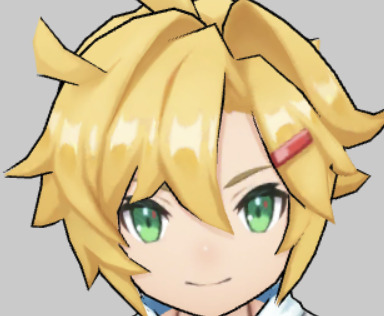
But when I mean it's everywhere, I mean everywhere. Even in wyrmprints, who were made by a whole host of vastly different artists, preserve this quirk when he's close enough to the front to be able to slip in. Enough to make me think it's in his character notes or guide for artists.
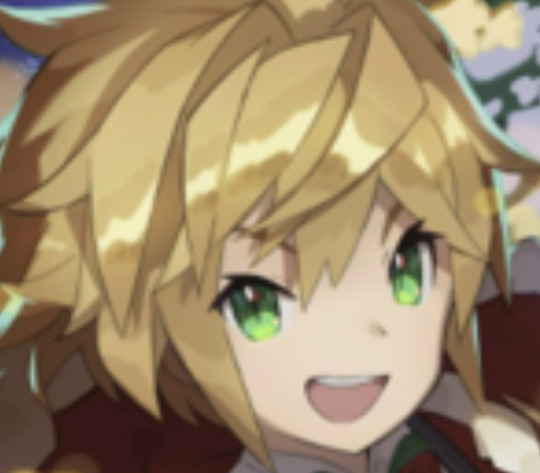
...But he's not the only one with this trait in the royal family.
We've:
-Zethia


-Chelle

-And, perhaps most interestingly, Phares, as his are purple instead of red.
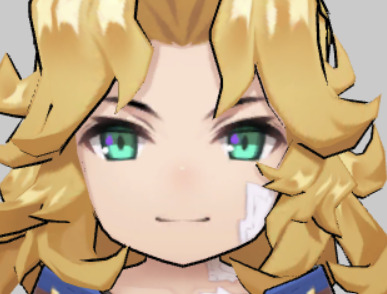
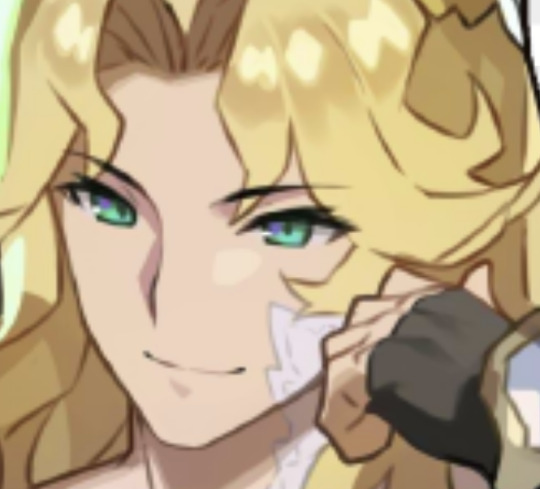
Nobody else has it. Leonidas' eyes are bright green enough and plenty intense as it is, Valyx's are a plain brown, Beren's are purple/pink completely, and Emile's are a bright blue. Nedrick technically fits in that he's got red and green, sure, but he's...odd in many ways, and his default eye color without all the bad Bahamut vibes seems to be like Leo's, bright green with absolutely no hint of red.
When I first looked all the royal fam after I noticed this trend (for me, Euden to Zethia to Phares), I thought, "hm, is this a sign of possession, a joke among the artists that this character is or will be possessed?" Especially because Morsayati does that 'whole eyes to red' thing, and when Zethia is possessed, where should be her red fleck turns to a green one. And maybe Phares' are purple to signify the Progenitor instead of Morsayati.
But Chelle bucks that trend entirely, escaping scot free from any such shenanigans. So what is it, for such a small trait to be so consistently portrayed in these 4's art?
First, I thought it simply might be a trait from King Dad (AKA Aurelius, in my set of nicknames I use to communicate to my best friend who never played dragalia...) But no, Aurelius does not have the red fleck, just a deep deep blue/teal.
So I looked even further back in the bloodline, and for that, I turn to King Dork, AKA Alberius, -who may be the originator of this whole quirk!

Voila! If it is a trait that's been passed down through him, I got to thinking even more. What if the colored fleck was a result of him sealing Morsayati in the blood, and perhaps a greater concentration of it or something similar was what manifests a red fleck in the eyes? Ah, but alas, this is immediately disproved by the fact it's in this model, too, before he sealed the demon.
However, that doesn't mean it might lack entirely for significance. Perhaps it's an occasional feature of dragonblood, since they seemed like they kinda wanted to make the family have a bit more 'draconic' traits sometimes or otherwise have physical effects dragonblood brings, like how rarely some of the royal fam seems to have rather pointed/pronounced canines compared to the typical style in dragalia, like Leonidas and Emile here (alas, most the family doesn't often show off a full toothy grin, leaving us with the more emotive ones when they're really mad), or concept art of Euden who seems (to me, at least) to have slightly pointed ears:


I'm not exactly sure where I'm going with this, but I think it'd be interesting to explore if the family had other traits because of their dragonblood! It's noted in like one place to give them some different veins, like literal new veins, not just the composition of blood in standard ones flowing, so I don't think it's entirely off the table. I myself kinda play a bit with this idea in my one dragalia fic, Scaling the Walls of a Mystery on AO3 because it's just so cool to me (Which I'm working very hard on getting an update ready soon!), but I'm always down for more speculation!
So yeah, red or purple flecks in the royal family's eyes is surprisingly common. Did you notice that when playing, and/or speculate as to a potential import? Or is it just artists adding a quirk for the sake of it?
#dragalia lost#dragalia#listen the royal family are disasters in unique ways but I love them okay?#I love the fact they went full in to the 'huge#messed-up royal family' trope since most royal families I see in fiction are pretty small#...And somehow managed to do that with a atypically good and overall wholesome and loving father for the genre and trope!
89 notes
·
View notes
Text
What if Lindir is Daeron?
Great minstrel? Check! He pasted over the blue mountains and his fate is unknown? Double check!
We know that his love of Luthien was great, he repented his deeds and left Doriath in search of her after they heard that Beren might be dead, although he never found her. So eventually he got lost and pasted over the blue mountains.
Perhaps he wandered for some time, or settled in a little bit of forest east of the blue mountains, until one day in the second age, maybe he hears singing, or elves nearby, laughing and talking, and wanders towards the source.
A party of elves passing through, Elrond leading them.
So Elrond talks to him, privately, he’s curious, about this strange elf, and maybe has a strange feeling of familiarity. Daeron tells a bit of his story, though not his identity, only telling him that much, only staying, because Elrond subconsciously reminds him of Luthien. A love he lost. He expresses his sorrow for Luthien, perhaps believing she died.
Then Elrond says no, comforts him, and tells him the story of the lay of Leithian.
And that she was his great grandmother.
At this Daeron breaks down. Shocked. And so, so saddened that he couldn’t find her himself. To apologize. But most of all to see her one last time, understanding that her love of him is that of a dear friend, and that’s okay. He’s okay with that.
Elrond of course doesn’t understand why this strange elf just started sobbing out of no where, but tried to comfort him. Until, between sobs, Daeron manages to say, with such grief in his voice, “I looked for her for so long. But I couldn’t find her. I couldn’t find her. She never knew, she never knew that I only wanted her happiness and I came to accept her choice. That I wanted to apologize for everything. I never got to say goodbye”
At this, he breaks down again. And Elrond, understands. Who he is, all of it.
Daeron stays with him, perhaps feeling that, if he couldn’t help Luthien, maybe he can help her family, help Elrond.
And maybe one day, he sings again. He had sung an only a little bit, snatches here and there, over the years, but mainly just played instruments, usually in the privacy of the gardens. But he sings. Not a layment, perhaps just a simple song, about the coming of the songbirds, maybe even nightingales, in the spring. And Elrond, glad to see that he is truly starting to heal, smiles, so bright, exactly like Luthien did, and calls him Lindir. And Daeron, now Lindir, uses that name for the rest of his life.
#I didn’t expect it to go that deep#daeron#lindir#lindir is daeron#silmarillion#tolkien#the hobbit#elrond#luthien
118 notes
·
View notes
Text
I had completely forgotten that the Silmaril is cursed by the Lord of Nogrod. He curses it as he dies, slain by Beren reclaiming the jewel (and by extension the Nauglamír that it is now attached to).
Also. Wait a minute. On the next page we have "the wise have said" that the silmaril may have "hastened" the deaths of Lúthien and Beren, bc the "flame of the beauty of Lúthien as she wore it was too bright for mortal lands." Was this related to the curse? Unknown. Was it related to Fëanor? The use of the word flame is interesting to me. Fëanor also did not last long in mortal lands. Either way, the Silmaril once again is speculated to have a negative effect on the one who holds it.
#i genuinely love that tolkien leaves the impact of this curse unclear#and the powers of the silmaril also#silm#the silmarillion#luthien#beren
52 notes
·
View notes
Text
I don't think I like Hugo Weaving's Elrond much but I don't know how much of it is actually his fault.
These are thoughts that I have been ruminating over ever since The Fellowship of the Ring dropped when I was a kid.
I don't much like Elrond in these movies.
I think too much of him was sacrificed, and not for any real trade off.
While I feel a lot of this was a consequence of Hugo Weaving's casting, I don't feel blame should be laid at his feet because he doesn't control what the writers for his characters do.
Elrond in the films is constantly frosty, stand-offish, and almost distant. He comes across as a controlling man through his interactions with Arwen, and ruled by his (justifiable) fears of what Sauron is already capable of, and could be capable of again should he be reunited with the Ring. And that's a valid fear to be ruled by, but the movie overemphasizes this at the expense of the rest of Elrond's character.
Elrond is aloof and ethereal and otherworldly, yes. He's among the greatest of all elves, EVER, and so of course he comes across as a bit... weird when met by non-Elves. But he is not paranoid, angry, or controlling.
He fears much, yes. But Elrond also embodies courage because his fear doesn't rule him, it motivates him. He doesn't sit around going "oh nothing can possibly work", or disparage Men and Dwarves because in the books, while he's well familiar with the failings of others, he's also seen them at their best, and is fully aware that, given the history of HIS people (and occasionally his own personal history), he has NO room to stand in judgment of others. He's also a man of HOPE.
While not impossible, it's difficult to imagine Weaving!Elrond saying "The world may be grim, but there's always hope. Even in the darkest of days, there may be one bright star to guide you" with a kind face. Or, "Such is of the course of deeds that move the wheels of the world: small hands do them because they must, while the eyes of the great are elsewhere." Or perhaps when in the books he commended Frodo's incredible bravery in choosing to carry the Ring by saying "it is a heavy burden. So heavy that none could lay it on another. I do not lay it on you. But if you take it freely, I will say that your choice is right; and though all the mighty elf-friends of old, Hador, and Hurin, and Turin, and Beren himself were assembled together, your seat should be among them." Elrond was outright comparing Frodo's bravery and courage to the best heroes his people had ever known!
Elrond is regal and willful and a force of nature at times, but he's hopeful. He's kind. He's wise, wiser than almost anyone else. Gandalf considers Elrond his equal in such, if not even more so. Hell, Gandalf regards Elrond the way he once regarded Saruman. That means a LOT! Elrond in the books doesn't really waver in his faith in the Fellowship the way he does in the films. He doesn't judge Men by the failures of Isildur, a man who died thousands of years ago. He doesn't stand in Arwen's way as she decides for herself what she wants (not that this featured heavily in the books at all). He's concerned about Man's possibility to fail, but stands by them as much as he can regardless because he does believe in people and besides that, he gave his word that he would stand by them as much as he could. He mistrusts Thorin's company, but for entirely justifiable reasons as their quest may very well fail and get them, an innocent Hobbit, and Gandalf the fucking Grey killed (and he has no reason to suspect Gandalf might just be able to "nuh-uh" death and come back), and even if it succeeds, they might release a DRAGON (one of the scariest fucking bioweapons Morgoth ever devised during the War of Wrath, more terrifying than even a Balrog and certainly with more capacity for mass destruction) on Middle-Earth, which is far from the pretty racist Elrond we get in the Hobbit films. And said dragon DOES get unleashed and it's basically only by fortune and/or slightly possibly fate that it got brought down at all, so really, the dude was 100% in the right. In the movies, he frankly doesn't want to help Thorin's company first and foremost because they're dwarves, and all his other concerns as stated earlier are just a veneer of reasonableness that he uses to justify it, or as "just another reason" why he should frankly not help them and actually probably have them arrested.
Elrond Halfelven in the books is good and kind, compassionate and wise, and we barely see these things in the films! And not for lack of time, because Elrond is really no bigger a player in the main books than he is presented as in the films. In fact, the films ADDED material with Elrond the books did not have, so the idea that these aspects of him were "trimmed for time" is patently ridiculous. Many of his best lines and advice to the heroes in the books are instead given to Gandalf and Galadriel, such as:
Elrond raised his eyes and looked at him, and Frodo felt his heart pierced by the sudden keenness of the glance. "If I understand aright all that I have heard," he said, "I think that this task is appointed for you, Frodo; and that if you do not find a way, no one will."
The films consciously and deliberately rewrote Elrond's character to make him less likable. Why? I can't prove anything, but I strongly suspect Elrond became a victim of his actor's casting.
In the 2000s, Hugo Weaving was known for A Type. Most were familiar with him at the time via his incredible turn as Agent Smith in The Matrix, and this colored the roles he was offered for years. Fellowship of the Ring's production came hot on the heels of The Matrix, and it's likely that this affected the writer's view of how Hugo Weaving's character should behave. Elrond was very probably altered to fit that perception better while still being an overall heroic character.
Whatever happened, Elrond in the films became a vaguely racist Asshole Hero who is presented as a controlling and pessimistic man who basically only agrees to the Quest so he can get the Ring as far from Imladris as he can conceivably do so Sauron doesn't have ANOTHER excuse to lay siege to the place while Elrond is trying to pack his tribes onto a bunch of boats so they can Peace Out from Middle Earth forever, and also because he's so terrified and desperate that he'll try anything to destroy Sauron at this point and there's no reason to expect more conventional means to work. I'm frankly pissed off because Rings of Power, which I famously detest for being a stale and banal and fundamentally disappointing piece of shit, somehow managed to do a better job with writing Elrond's essential hope and bravery and optimism than Peter Goddamn Jackson.
In Rings of Power, he DOES get to show that more kind and compassionate side to his character, with some VERY Elrond-esque zingers like "Where there is love, it is never truly dark", "We do not say goodbye. We say namárië. It means more than simply "farewell". It means, "Go towards goodness".", and this lovely exchange:
Elrond: "You have fought long enough, Galadriel. Put up your sword."
Galadriel: "Without it, what am I to be?"
Elrond: "What you have always been. My friend."
I greatly enjoy the memes that have cropped up around Weaving!Elrond since the film's release 22 years ago (AAAAAAAAAAAAAAAAAAAAAAAAAAAA!!!!), but it saddens me that Elrond's characterization seems to have suffered for having Hugo Weaving, who is a brilliant actor but also one definitely going through an arc of villainous and anti-hero typecasting at the time, play him. There was time enough in the movies to get him right. They made certain of it. Which means every change they made was deliberate, and one of Tolkien's best and most important characters was effectively assassinated for it.
#jrr tolkien#the hobbit#quotes#books#lord of the rings#middle earth#tolkien#tolkien elves#elrond half elven#the lord of the rings#lotr#peter jackson#hugo weaving#the fellowship of the ring#tlotr#john ronald reuel tolkien#rings of power
34 notes
·
View notes
Text
Finrod, upon being reembodied in Aman, feels lost. First Noldo to return, the only child left of the house of Finwë where once the streets of Tirion and the beaches of Alqualondë, the halls of the palace and the cozy walls of Arafinwë’s house, had rung with merry laughter.
His father had met him outside the Halls of Mandos, eyes alight with such terrible hope that Finrod had been almost afraid. Never had he seen such an expression upon his father’s face, not even when he had turned away from all his children and gone back to Tirion with head bowed. (But then, his father had not spent half a millennium without his children. Then, his father had not felt his sons fall to dragon and wolf, felt their pain and terror and confusion.)
But then Arafinwë had caught sight of him, and there was such joy upon his face that Finrod forgot the words that had passed between them when it became apparent that Arafinwë would not follow his brother into exile; forgot the years leading his House alone; forgot even, for a moment, the knowledge of how it felt to be ripped apart so wholly you could not understand the shape of your fëa. He forgot all, in the rush to fling his arms about his father and be embraced in turn. Atya was weeping into his shoulder, and Finrod was crying in turn, and he let himself be held as he had not since long before that terrible dark night in Tirion.
And when they returned to Tirion, and his mother embraced him in turn, arms strong about him and words of forgiveness spoken on both sides—still then he had felt nothing but joy.
But with the passing of time, some of that had—faded—and now Finrod wanders the hills about Tirion, lost and longing for something he cannot name.
Part of it is grief. Everyone in Aman knows grief, now; the Teleri cruelly slain had learned it well, and the Noldor forever sundered from their kin no less. But there is still the certainty, beneath the loss: no one is gone forever. The dead Teleri, killed for their ships, had marched home singing long ago. Finrod himself, Doomed and Returned, can see the hope dawning in the eyes of the Noldor who look at him. He is back! they seem to say, he is back, and if he is back why should not my beloved be returned?
But what of the Atani?
Finrod had known, in Endórë, that his fate was sundered from Men. He had felt it keenly as they died: slowly, one after another, in the long years of peace, then quickly and brutally, when their Leaguer was broken. Still he had had hope. He was Doomed, with little hope of mercy; why, after all, might he not see the Atani again, in whatever place he was sent after his ending?
Now he knows: they are gone. Gone beyond the world, and no hope of reunion. Balan, Baran, Barahir, Beren, even Lúthien: gone past recall. And there is no one else in Aman who knew them; no one else who loved them; no one with whom he can grieve as mortals grieve.
He sits, in the hills, and waits. He is weary. There is joy—of course there is joy!—but there is so much sorrow. So many gone, and none who can understand.
What is he waiting for?
I can understand, says a voice next to Finrod, and he looks up to see—
A hooded figure, garbed in gray, shoulders shaking, sorrow-cloaked—
This is the Lady Nienna.
Finrod kneels. "My Lady," he says, "what would you have of me?"
It is so rare, to see Nienna. Others among the Valar had visited often, Oromë and Ulmo, Vána and Estë, to rejoice at celebrations and wonder at children born. But Nienna was locked in grief, and would not venture forth.
Nienna’s voice comes again, haunted with sorrow. I would have you follow me. I grieve with you, for the Secondborn who are so bright and beautiful, and fade so soon. Perhaps you, in turn, may grieve with me, and give comfort to those who come to my dwelling.
You have walked long in sorrow, Friend of Men. You have loved mortals, and have not feared their loss as it breaks you. The Atani had much to teach you—and you in turn have much to teach us, if you are willing.
Finrod has begun to weep, though he hardly feels it. He does not hesitate. "My Lady of Sorrows, my Lady of Mercy," he says, "I will follow you. Through sorrow to joy."
I am sorrow, Nienna responds, her voice like the tolling of a great bell, but through me, to joy will you walk.
#finrod#Nienna#my weird little post death headcanons for finrod#little golden meow meow#my writing#silm fic#the silmarillion
175 notes
·
View notes
Text
The wolves had a tale of a great wolf who ate a star. The star was so bright and beautiful and alive and the great wolf thought he could took its light and keep it for himself.
The star burnt him from inside and burnt his heart burnt his blood burnt his mind
He ran and ran running away from the pain inside his body from the star burning him alive
He ate elves he ate man he ate orcs he ate animals he ate grass and barks he was hollow inside he was hungry and he wanted water
He tried to drink from springs but the water burned his flesh so he tried to drink blood but no blood would satisfy the star
He passed across a forbidden border maybe the border took pity on his pain he arrived in this land of beauty and peace where he was hunted and slain
The elves cut open his stomach and the star was there
The wolf wanted the star and the star hated the wolf
—————
(How I think wargs would tell their historical moral tales)
(They absolutely did not remember Beren and Luthien they focused on how this great wolf tried to steal a star and SUFFERED)
#silmarillion#silm#silmarillion headcanon#silm headcanon#carcharoth#silmarils#i am going to fairytale silmarillion i am going to fairytale it so hard
226 notes
·
View notes